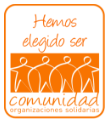As a way of advancing the learning of the children of the commune during the suspension of classes, the Municipal Corporation of Renca (RM) invited the schools to work under the Project Based Learning (PBL) methodology. The early levels of the Domingo Santa María, Rebeca Matte and Juana Atala de Hirmas schools took up the challenge and developed proposals to channel curricular prioritisation into a cross-cutting theme, with the aim of facilitating the development of children's activities at home. The initiative has had great acceptance in the communities, considering the context and the stress of families in the crisis.
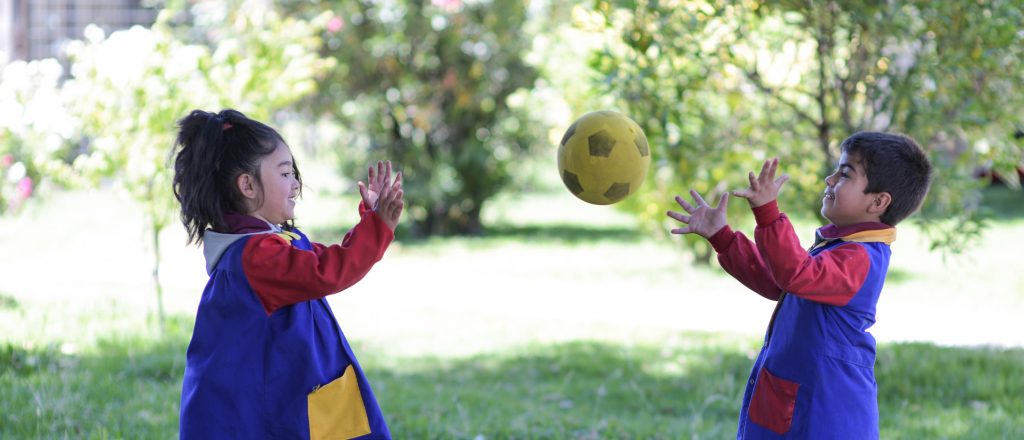
COVID-19 has exacerbated the social and economic complications that families in Renca (RM) have to face on a daily basis. These pedagogical difficulties are mainly reflected in the disconnection of a significant number of students from their schools.
The schools' efforts have focused on strengthening the link with their communities. For this reason, educational actors have had to work collaboratively, adapting their pedagogical practices to the reality they have been confronted with, but also designing strategies to solve the barrier caused by distance and problems of access to internet and technological devices.
In this context, and in order to respond across the board to the academic and socio-emotional expectations of the community, it was necessary to generate an educational proposal that was framed within the curricular prioritisation and that linked all subjects in a single project, but above all that was concrete and motivating for the students and actively involved the families.
The PBL methodology fully complied with these characteristics and the Municipal Corporation did not hesitate to invite Renca's municipal schools to implement it. This call led to the following initiatives in 3 schools: a tool that has allowed the collaborative systematisation of project development, a YouTube channel for the initial level, and the projects Arbol Genealógico and Juana Atala magazine. These strategies have made it possible to approach families effectively and not interrupt the educational process.
Domingo Santa María School:
"Our immediate action was to replicate what we were doing in the school and send the printed guides to households.says headmistress Tamara Contreras. "March was very intense and we quickly realised that those guides were not being returned and that families were not responding," says headmistress Tamara Contreras..
"Because of the uncertainty, at the beginning every teacher was like an island.Denisse Catalán, coordinator of kindergarten education at the school, warns, "and there was a misconception that all subjects had to be covered, and to do that, all possible guides had to be sent", warns Denisse Catalán, coordinator of kindergarten education at the school..
"It was a disjointed volume of work".says Tamara Contreras. "As at the beginning each subject needed to advance in its curricular coverage and we did not generate dialogue, the results were not what we expected,".
"The families began to show signs of stress".says Denise Catalán, NT1 educator, "added to the fact that the context of our community is one of high poverty and often does not have the material and training conditions to support their children", says Denise Catalán, NT1 educator..
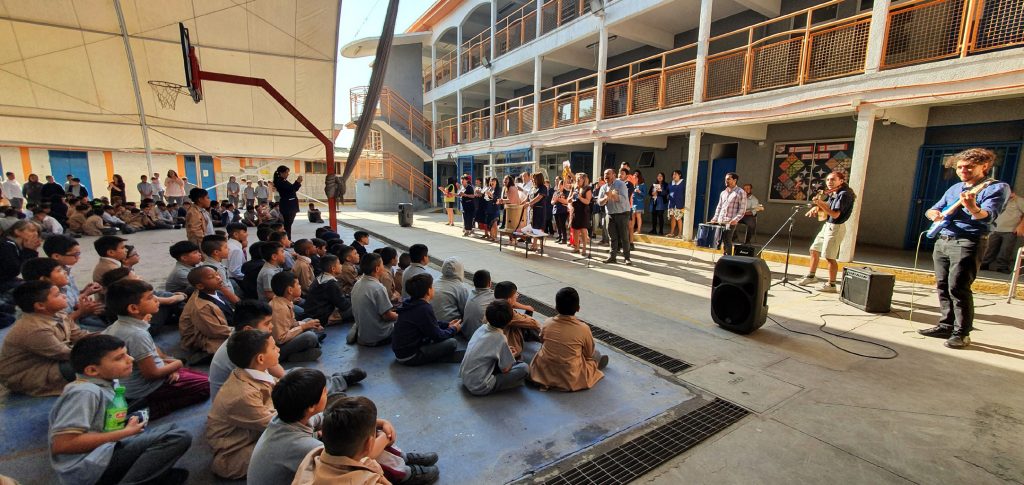
"Through the connectivity census we did in March, we realised that there was very little access to the internet and online classes were impossible.The turnaround was made in April, when the winter holidays were brought forward," warns director Tamara Contreras. "The turnaround was made in April, when they brought forward the winter holidays," warns director Tamara Contreras..
"We went into the break with the feeling that a lot was missing".says Denisse Catalán. "The teams from the school and the commune met to analyse how to improve our proposal and it was then that we had the idea of taking up the experience of the Interdisciplinary Projects that we had implemented the previous year," says Denisse Catalán..
In 2019, the Domingo Santa María School developed a strategy to strengthen the hallmarks of its educational project, which resulted in the development of collaborative work by the teaching team: "Every two months, the teachers came together to create a regular project, where they addressed the same issues. Therefore, there was an experience that, although it needed to be fine-tuned, was highly valued by the teachers"., points out the school's headmistress.
"We proposed that the work during the year should be project-based, with an adaptation of PBL," says Denisse Catalán.says Denisse Catalán.
"In order to launch this strategy, it was imperative that we could create an instrument that would allow us to articulate and define our work cycle.says head teacher Tamara Contreras. "In this way, we designed four meetings, which required the participation of management teams, early education, PIE professionals and school coexistence, and whose objective was to generate a roadmap for each project we implemented," says director Tamara Contreras..
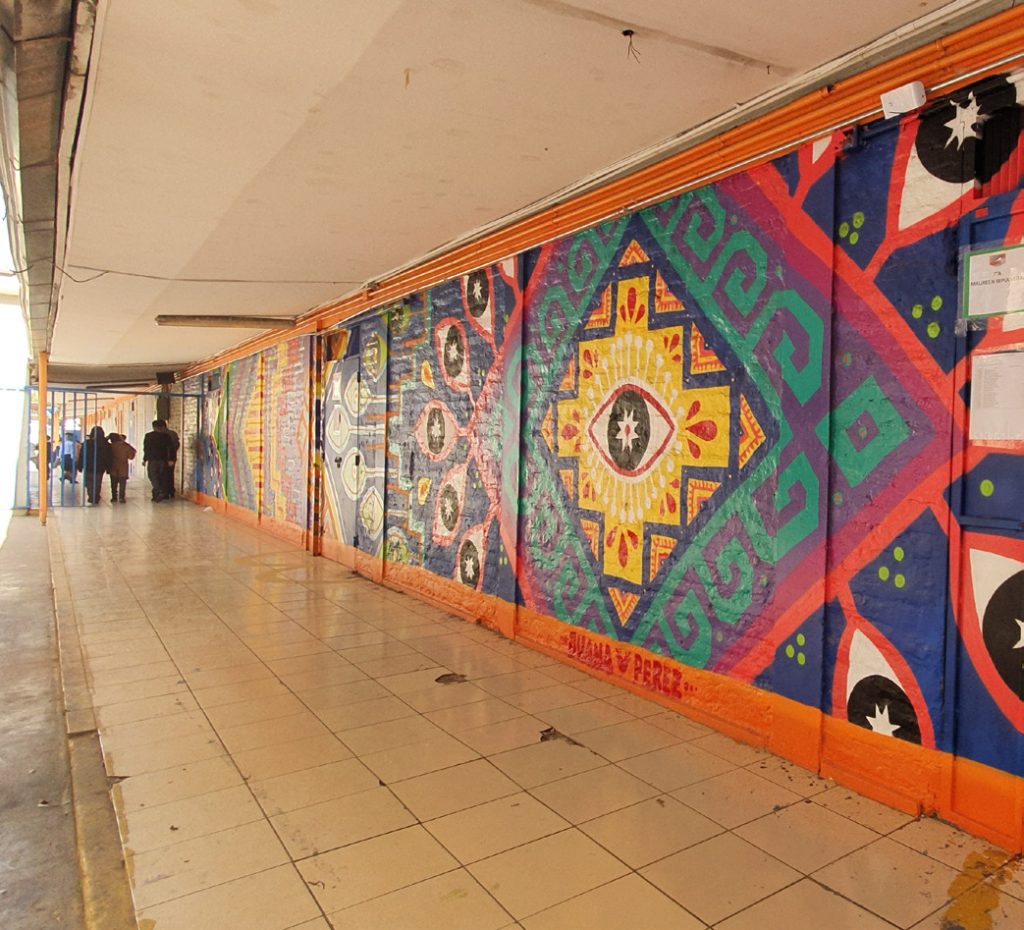
During the first meeting, the principal explains, the theme, purposes and subjects to be worked on in the project are defined. In the second meeting, the learning objectives are prioritised, while in the third, the teachers must present their proposed activities, at which time the other members of the school teams also make changes, comments and propose adjustments. Finally, in the last meeting, the assessment criteria to be applied are developed.
"It is a complete cycle of elaboration.adds coordinator Denise Catalán. "Then come the two weeks of work by the students, in which the accompaniment of the families is fundamental, because they must begin to generate and send the evidence. Then they are reviewed and feedback is given by telephone or WhatsApp", adds coordinator Denise.
Rebeca Matte School:
"In our school we have focused on strengthening communication with families to avoid dropouts.says headmistress Alejandra Casas. "However, at the beginning it was very difficult for our children to adhere to the learning process," says headmistress Alejandra Casas..
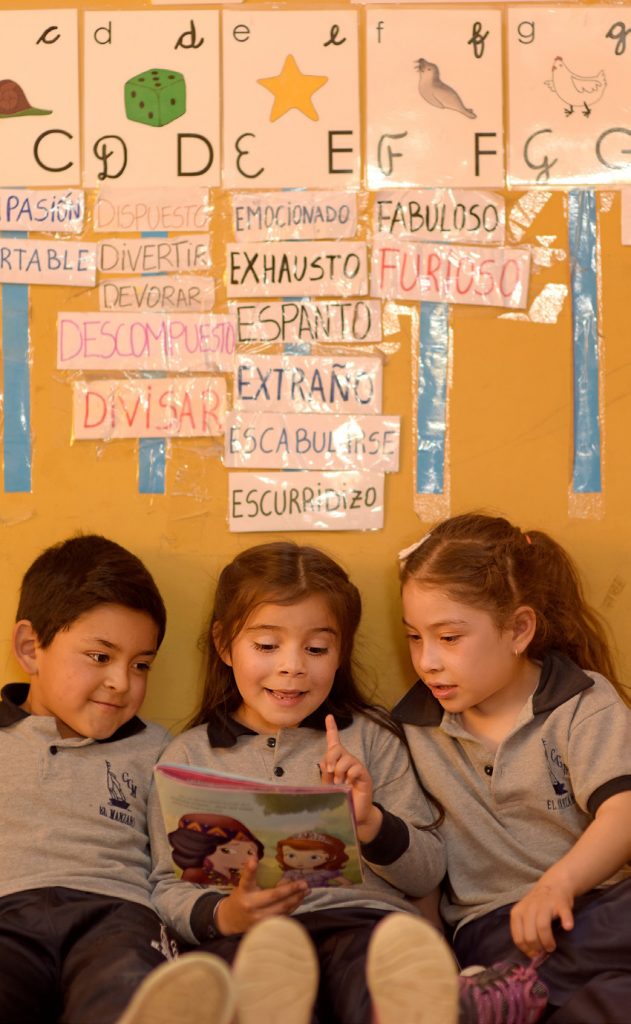
"We started sending material because we didn't know how long it would last.says educator Catherine Alvarez. "We sent out two daily guides for kindergarten via WhatsApp and, although there was a follow-up of this work, the first month we received very little response from families", says educator Catherine Álvarez..
"We soon realised that this was going to drag on and we had to come up with a strategy that was up to the task.adds Alejandra Casas. "The previous year we had implemented a pilot in the seventh grade that included PBL. This prompted us, during the winter holidays in April, to decide to adapt this methodology to deal with the educational period we were going through", adds Alejandra Casas..
At that time, explains the director, the school also defined its three prioritised objectives: the first was the emotional support of students and staff, which led to the formation of teams that began to monitor the children and create support material; the second was to prioritise the curriculum and link all subjects in a single project; and the third prioritised objective was to generate social support for families.
"The prioritisation of objectives was very useful."says educator Catherine Alvarez. "We knew we had to work on something that the children already knew, that they were familiar with. The previous year we had used the integrated planning of 'A Good Start'. So I took the plunge with a story, made a first video, showed it to the teachers of the other two classes and they loved the idea", says teacher Catherine Álvarez..
The work of the kindergarten team has always been very prominent at the school, explains headmistress Alejandra Casas, and the project of a YouTube channel for kindergarten was quickly endorsed: "There are three teachers and each one is in charge of one of the three areas: communication and artistic language, logical-mathematical thinking and science and environment. The idea is that kindergarten A, B and C have the same contact with the three teachers through the channel"..
"Our idea was to include all aspects of a class in a video that lasts no more than 20 minutes".Catherine Alvarez explains. "It starts, develops and closes, and is edited so that at key moments the children can stop it and do the activities with their parents," says Catherine Alvarez..
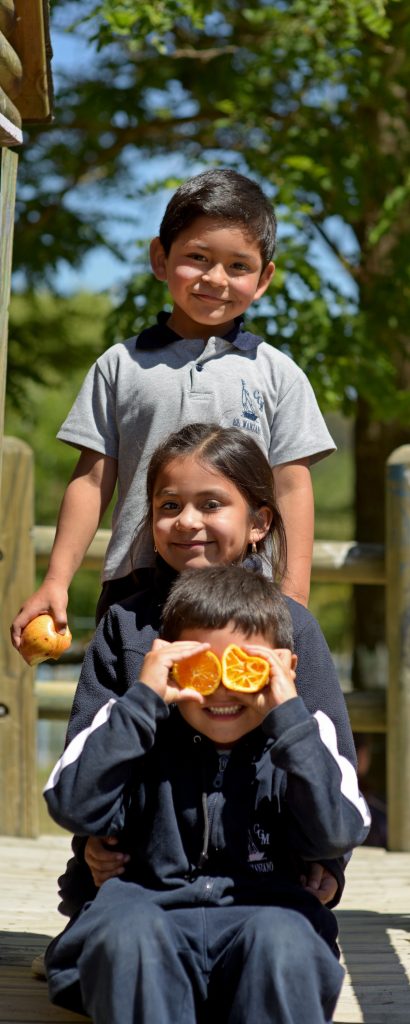
"Each story, each recording, is worked on for two weeks with different strategies".The educator adds. "There are comprehension, vocabulary building, writing and, in addition, I added reading. And to include each core, what we did was to link the other content to the book we were narrating," she adds.".
"This methodology forced us to look at collaborative work in a different way.says headmistress Alejandra Casas. "When we started working in this way, we began to receive evidence of learning," says director Alejandra Casas..
Juana Atala de Hirmas School:
"As soon as we heard about the suspension of face-to-face classes, we started to implement the Classroom platform.says principal Bárbara Hayes. "We generated the emails and started doing what most of the schools did: sending guides online and also in print. That worked for a very short time", says headmistress Bárbara Hayes..
Edith Barrios is a kindergarten teacher at the Juana Atala School and says that the youngest children have been very disadvantaged during this period: "It has been difficult not being able to develop the affective part with them and that aspect has been very deteriorated"..
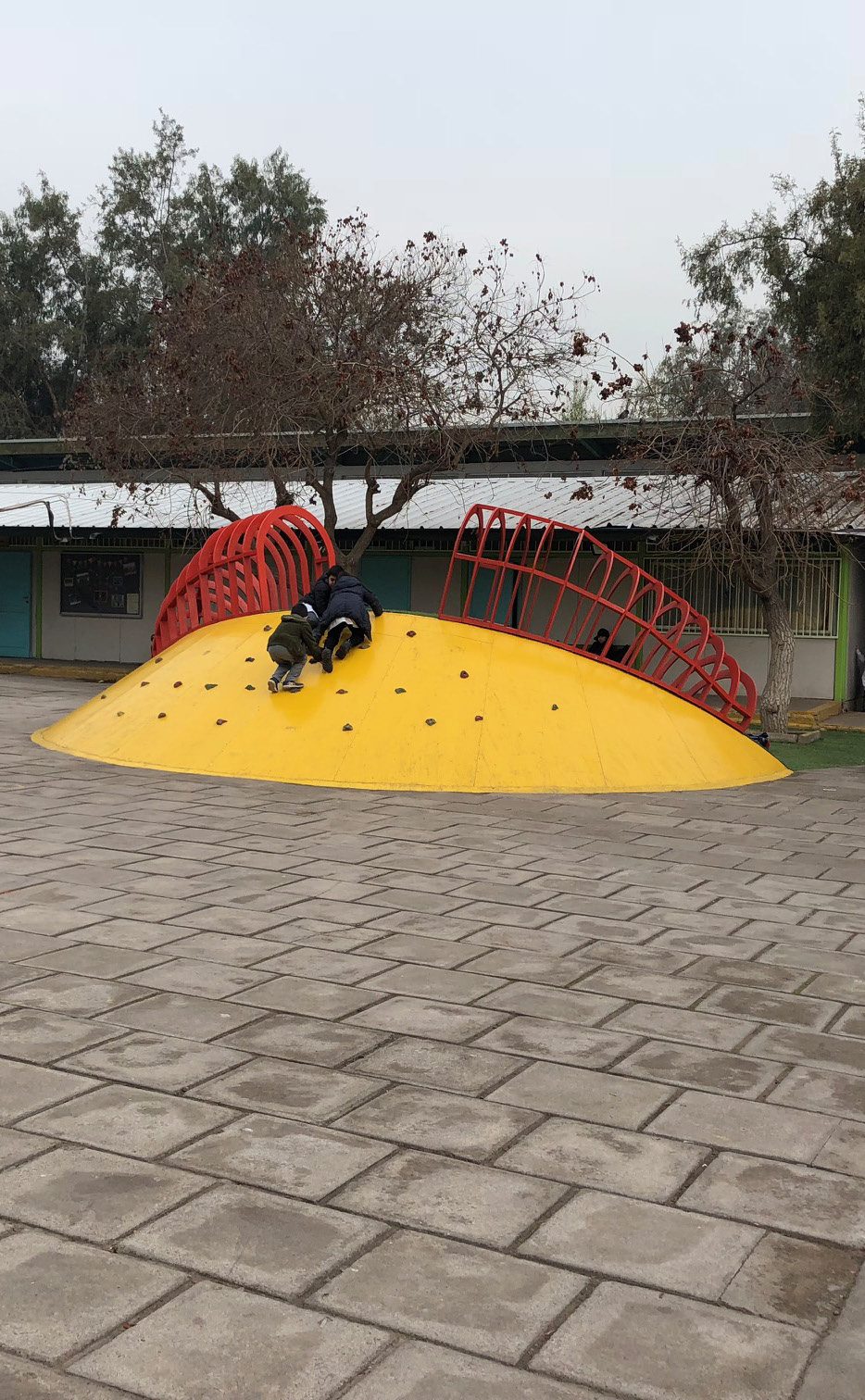
"The parents in our school were going through equally, if not more, difficult times than ours.says Bárbara Hayes. "And clearly, their children's learning was no longer a priority. When they brought the holidays forward in April, the teams decided to get together and really sit down and think, because somehow we had to give continuity to the educational process," says Bárbara Hayes..
"After the limited success we had with the guides, during the holidays we designed a strategy to work on the basis of projects, but not by course, but at school level".says educator Edith Barrios. "Why did we want to do it this way? Mainly because families have two or more siblings attending the school, so, to facilitate coordination at home, we only asked them to focus on one project," says educator Edith Barreto..
Headmistress Bárbara Hayes explains that since 2017 the school has set out to broaden its vision and has been concerned with incorporating the different learning that the teams have been able to develop: "Based on what the context allowed us, as a community we looked for alternatives to implement. That is where all the learning that we have worked on over the years came from, but we mainly focused on adapting PBL"..
"This methodologyshe adds, "allowed us to bring together everything we needed: incorporating socio-emotional, working on pedagogical objectives and developing skills rather than hard content. Essentially, we were looking for the facilities that would allow families to work collaboratively," she adds..
"We had to pass on to the parents the idea that they were now the protagonists of their children's learning.says Edith Barrios. "That concept was crucial to develop the first project in May: the Family Tree," says Edith Barrios..
"We decided that the first project had to necessarily look at family history.says the director of the Juana Atala School. "The process for designing the Family Tree was to ask the children to research their family history, to interview their grandparents, their parents, so that they could strengthen their bond," says the director of the Juana Atala School..
"Our planning has involved working for two months on each project and the results and the level of evidence we have obtained from the families has been amazing.says Edith Barrios. "Currently, at the school level, we are in the last stage of the Juana Atala magazine, a project that now seeks to generate belonging and strengthen the link between families and our school," says Edith Barrios..
This initiative is part of the document "Early Education: 6 Innovations in times of Covid-19" that you can download in full at the following link https://bit.ly/3eokQoC





